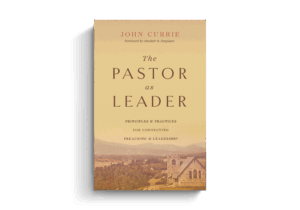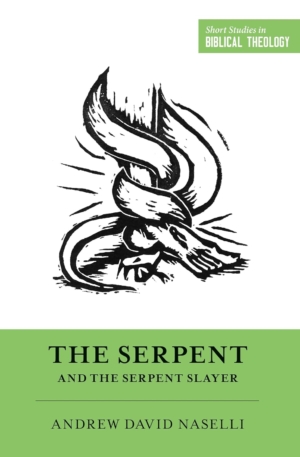Myles Coverdale (1488–1569) was a champion of the Word of God in sixteenth-century Europe, especially in England. He translated the Word, preached it, embraced new insights into its meaning vis-à-vis justification by faith alone, rejection of Christ’s physical presence in the Lord’s . . . Continue reading →
Reviews
Review: Confession of the Christian Religion By Girolamo Zanchi (trans. Patrick O’Banion)
Girolamo Zanchi (1516–90) is certainly not a household name in Christian circles. He was very well known among seventeenth-century Reformed Christians, however. For just one example, Puritan Thomas Goodwin wrote that Zanchi was “the best of Protestant Writers.”1 So why are many Reformed . . . Continue reading →
Review: The Pastor As Leader: Principles And Practices For Connecting Preaching And Leadership By John Currie
Leadership comes with the territory of pastoral ministry. The trouble is that we do not always embrace it as a reality. It can be hard to see how the obviously distinct aspects of the pastoral call fit alongside normal assumptions about leadership . . . Continue reading →
Review: When Christians Disagree: Lessons from the Fractured Relationship of John Owen and Richard Baxter By Tim Cooper
Can we learn anything from the disputes between two seventeenth-century theologians in England, John Owen and Richard Baxter? In this book, Tim Cooper makes the case that we can. And if we can, there are few better-qualified guides than Dr. Cooper. Extensively . . . Continue reading →
R. Scott Clark On The Heidelberg Catechism: A Short Review
To say that this is a lifetime’s work by an elite historical theologian may be an understatement. Professor R. Scott Clark, who has taught Historical Theology at Westminster Seminary in California for decades, has been working on this project for decades. He . . . Continue reading →
Review: The Lord’s Supper As The Sign and Meal of the New Covenant By Guy Prentiss Waters
As a minister who has the privilege of serving the Lord’s Supper on a weekly basis, I would love for more Christians to grow in their appreciation and understanding of what it is, what it does, and why we should want it . . . Continue reading →
Review: To Gaze upon God: The Beatific Vision in Doctrine, Tradition, and Practice By Samuel G. Parkison
Eschatology is one of those perennially discussed (and often debated) topics in Christian theology that, in my estimation, can often miss the main point by getting caught in the details. Usually, the first question it prompts is about what someone’s view of . . . Continue reading →
Review: The Cure for Unjust Anger By John Downame, Edited by Brian Hedges
Among the sins you and I both have wrestled with is the sin of unjust anger. When faced with injury or injustice—whether real or perceived, whether against our person, someone else, or some group of people—we have been moved to respond in . . . Continue reading →
Review: Histories And Fallacies By Carl Trueman
As advocates of the Presuppositional approach to apologetics remind us ad infinitum, no one is neutral epistemologically. That is true enough. We must not, however, draw the fallacious inference that no one is objective. That does not follow. In Histories and Fallacies . . . Continue reading →
Review: Reformed Worship By Jonty Rhodes (Blessings Of The Faith Series)
Another book on worship? Well, yes. Though there seems to be a perennially voluminous output on the topic of worship (at least from among the Reformed and Presbyterian wing of Christendom), nevertheless, debates and disagreements on worship seem to persist. Beyond the . . . Continue reading →
Review: Beholding the Triune God: The Inseparable Work of Father, Son, and Spirit By Matthew Y. Emerson and Brandon D. Smith
The recent resurgence of classical Trinitarianism has borne tremendous fruit in bringing the reality of who God is to bear in the church’s ministry and proclamation. Even in confessionally Reformed circles where subscription vows have at least maintained a background fidelity to . . . Continue reading →
Review: Proclaiming the Triune God: The Doctrine of the Trinity in the Life of the Church By Matthew Barrett, Ronni Kurtz, Samuel G. Parkison, and Joseph Lanier
The Trinity is the heartbeat of the Christian faith, as Herman Bavinck reminds us.1 If this doctrine is indeed about pumping blood through our spiritual veins, then it must not be blockaded only into the academy halls and books inaccessible to ordinary . . . Continue reading →
Bates’s Recycled Errors
The gospel is central to Christianity. Protestants and Roman Catholics have been reflecting on and debating the gospel’s content for centuries. However, Matthew Bates argues that most of Western Christianity to date—Protestant and Roman Catholic—has completely misunderstood the gospel. In Beyond the Salvation . . . Continue reading →
Review: Swing Low: A History of Black Christianity in the United States By Walter R. Strickland
The earliest church experience I remember was in my hometown of Shreveport, LA. My mother made sure my brothers and I were dressed in our “Sunday best,” then loaded us into the car and drove us to a small white church building that could not have held more than sixty people. Continue reading →
Review Roundup: Covenant Theology (Part 2)
The covenant theology roundup continues with part 2. Continue reading →
Review: The Serpent And The Serpent Slayer By Andrew David Naselli
Growing up in the craggy mountains of Southern California, I developed a healthy fear of snakes, particularly of the venomous variety. As a young lad, whenever I would climb rocks and boulders, every crevice was considered a dark pit of hell from . . . Continue reading →
Review Roundup: Covenant Theology (Part 1)
Antonio Coppola’s Faithful God: An Introduction to Covenant Theology Faithful God is a pastoral treatment of covenant theology meant to equip ordinary Christians to see the categories of law and gospel and to understand how Christ is at the center of redemptive history. Continue reading →
Review: Still Protesting: Why the Reformation Still Matters By D. G. Hart
In 2008, Mark Noll and Carolyn Nystrom published Is the Reformation Over? An Evangelical Assessment of Contemporary Roman Catholicism.1 The book was measured in its answer, but in an interview at the time of publication, Noll said, yes, the Reformation is over. . . . Continue reading →
Review: Small Preaching: 25 Little Things You Can Do Now To Become A Better Preacher By Jonathan T. Pennington
Christians are lifelong students of Christ. Disciples are pupils in the school of the great Teacher. We are constantly learning more about Christ, his salvation, and what it means to follow him in faith. Similarly, preachers are lifelong students. There is no . . . Continue reading →
Review: The Psalms: A Christ-Centered Commentary By Christopher Ash—Part 2: Commentary Volumes
Christopher Ash has published a slew of material on the Psalms in his career.1 That trajectory has culminated in his massive four-volume commentary on the whole Psalter. This work is a tremendous contribution, not in the cliché sense, but in every way . . . Continue reading →


















